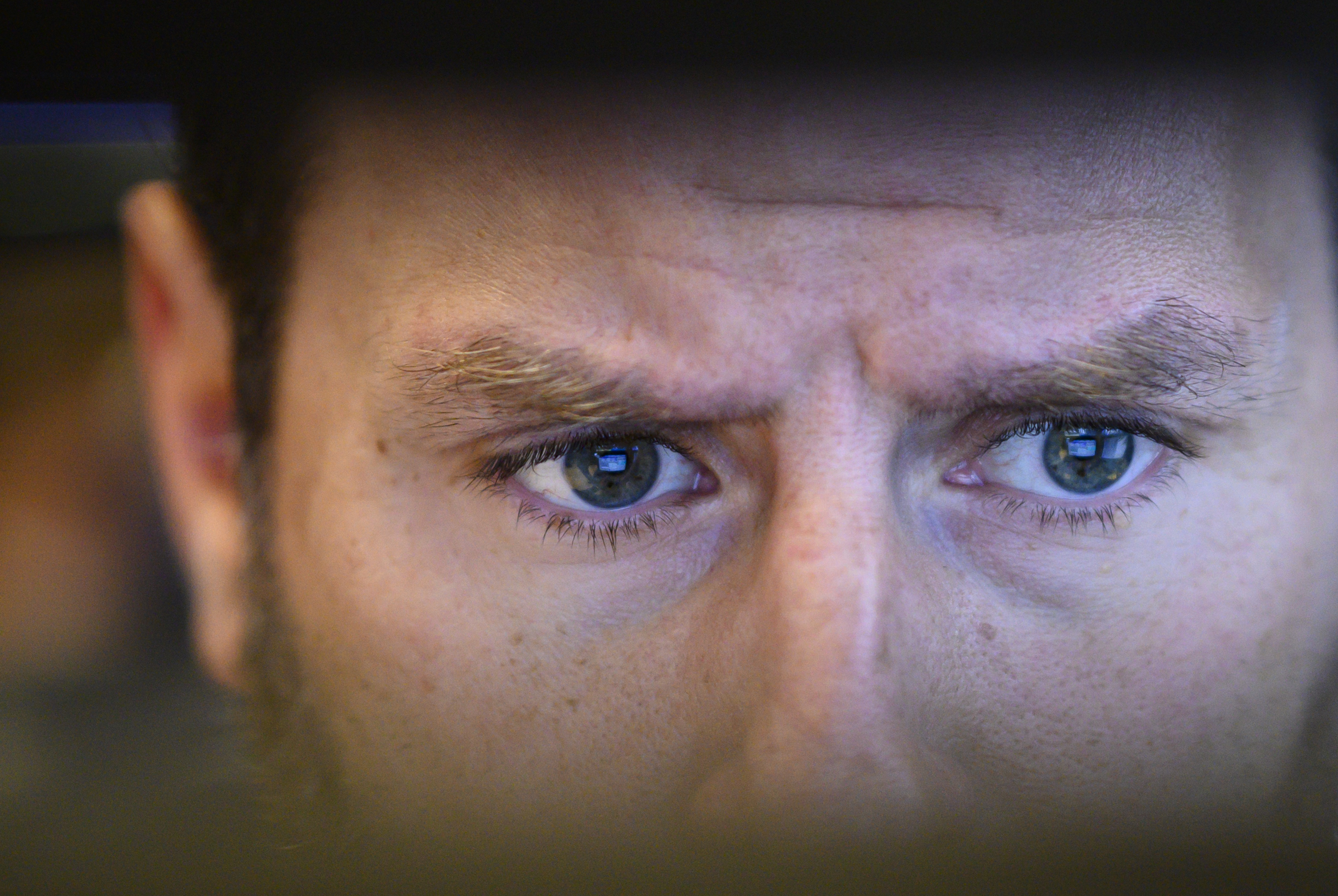Public health officials were retracing the steps of a Northern California woman on Thursday believed to be the first person in the U.S. to contract the highly contagious coronavirus without traveling internationally or in close contact with anyone who had.
The diagnosis, confirmed Wednesday, marks an escalation of the worldwide outbreak in the U.S. because it means the virus could now spread beyond the reach of quarantines and other preventative measures. But state health officials were quick to reassure the public on Thursday that such a scenario was inevitable and the risk of widespread transmission remained low.
Doctors at the UC Davis Medical Center said they asked the U.S. Centers for Disease Control and Prevention to test the woman for the virus after she was admitted on Feb. 19. But they said the CDC did not approve the testing until Sunday "since the patient did not fit the existing CDC criteria” for the virus, according to a memo posted to the hospital's website.
CDC spokesman Richard Quartarone said the agency is concerned about reports that the CDC delayed testing the woman. He said the agency is investigating, but a preliminary review of CDC records indicates the agency did not know about the woman until Sunday, the same day the woman was first tested.
The CDC can test about 400 specimens per day, Quartarone said.
California Gov. Gavin Newsom said the state was limited in how many people it could test because it only had 200 testing kits. But he said federal officials have promised to send many more testing kits in the coming days.
“Everybody in this country is rightfully anxious about this moment,” Newsom said. “I think they should know we are meeting this moment with the kind of urgency that is necessary, and I don’t want to over extend the anxiety.”
Investigators were focused Thursday on tracing the woman's movements to figure out how she got the virus and who else she may have unwittingly infected. The woman first sought treatment at NorthBay VacaValley Hospital in Vacaville, a city of more than 100,000 people about 59 miles (95 kilometers) from San Francisco.
Ten experts from the CDC arrived Thursday morning and were heading to Vacaville to help with the search, said Dr. James Watt, interim state epidemiologist at the California Department of Public Health.
With the patient as ground zero, they are interviewing immediate family members. Then, as with any similar case, they are expanding the net to include more distant family members who may have been in contact, social events the patient may expanded, like going to church. Did she go to work? Attend a concert?
They are not too worried, for now, about casual contact, because federal officials think the coronavirus is spread only through “close contact, being within six feet of somebody for what they’re calling a prolonged period of time,” said Watt, who was the state’s deputy epidemiologist for 10 years before he took the interim post two months ago.
“That’s more than casual contact at a grocery store,” Watt said. “That’s where our focus is going to be. ... What was the pattern of disease transmission?”
All of the 59 other cases in the U.S. have been for people who had traveled abroad or had close contact with others who traveled.
Earlier U.S. cases included 14 in people who returned from outbreak areas in China, or their spouses; three people who were evacuated from the central China city of Wuhan; and 42 American passengers on the Diamond Princess cruise ship who were evacuated by the federal government to the U.S. from where the ship was docked in Japan.
Some of those people have been treated at Travis Air Force Base, located in Solano County where the Northern California woman lives. But there is no evidence the woman has any connection to the base, said Sonia Angell, director of the California Department of Public Health.
The global count of those sickened by the virus hovered Thursday around 82,000, with 433 new cases reported in China and another 505 in South Korea.
The new virus is a member of the coronavirus family that can cause colds or more serious illnesses such as SARS and MERS.
The virus can cause fever, coughing, wheezing and pneumonia. Health officials think it spreads mainly from droplets when an infected person coughs or sneezes, similar to how the flu spreads.
Officials are advising people to take steps to avoid infection with coronavirus or other respiratory infections like colds or the flu, including washing hands with soap and water and avoiding close contact with people who are sick.
Beam reported from Sacramento, California.



